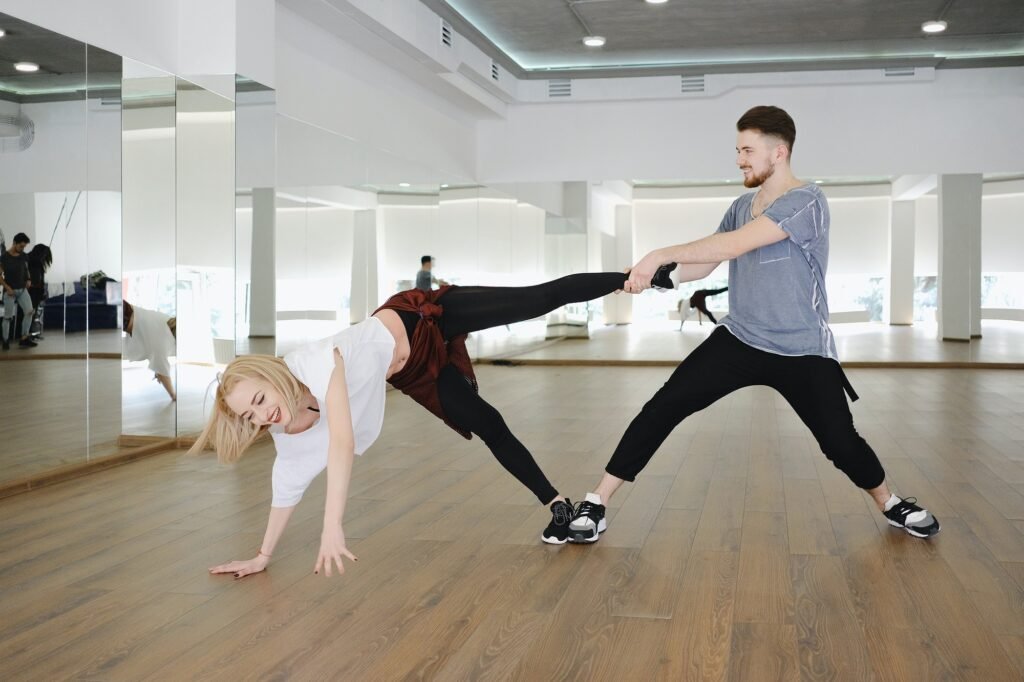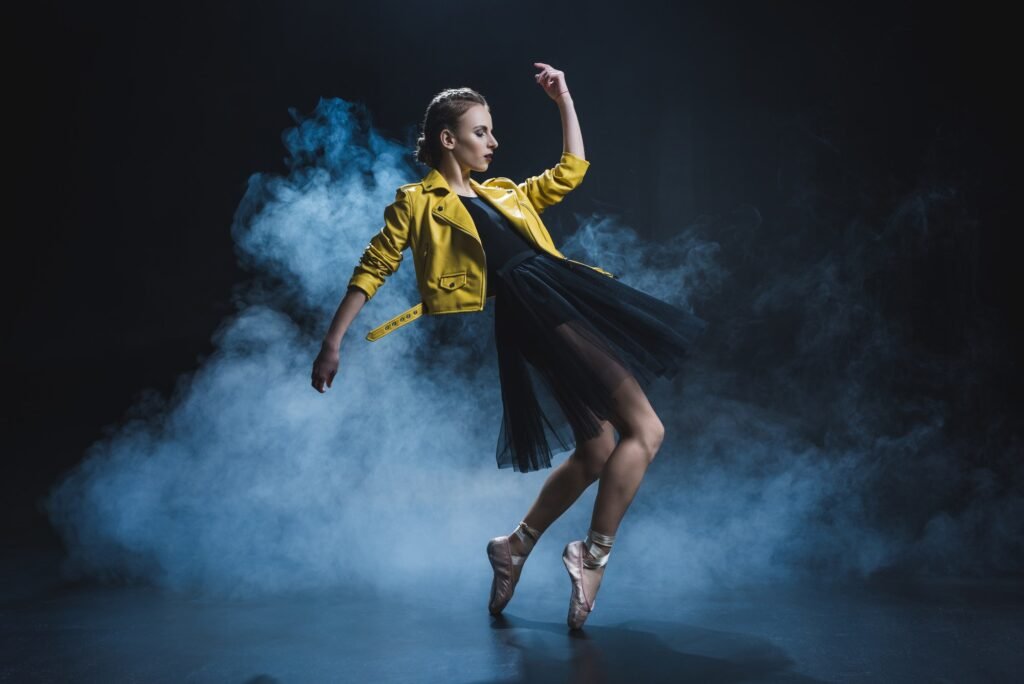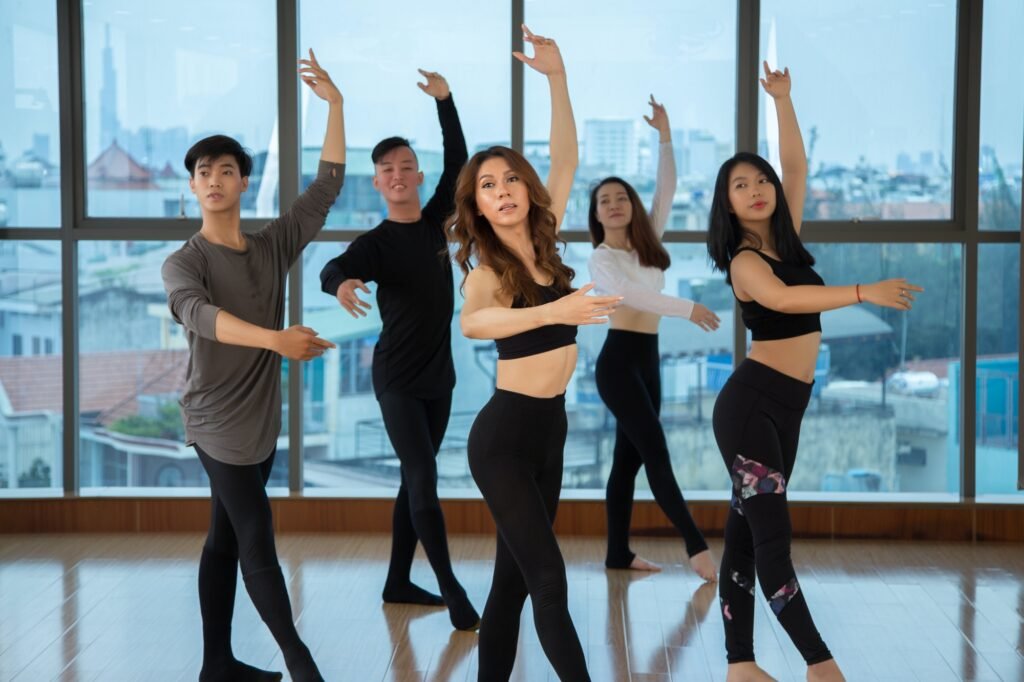CLI Conservatory Pairs Diverse Dance Training With Real-World Skills

When Teddy Forance founded the CLI Conservatory, he knew he was doing something no one had done before. Curated for students 17 and up, the 10-month program in Southampton, Massachusetts, combines high-level technical training with a unique focus on practical career skills designed to ultimately launch well-rounded dancers’ careers. “This is a dream come true to see our students finding themselves as artists and confident human beings,” Forance says of the program. After almost a decade leading CLI Studios’ online training program, he created the CLI Conservatory, which welcomed its first students in 2021. CLI Conservatory dancers train in every major style with more than 75 working choreographers, while learning real-world multimedia, arts, and entrepreneurship skills. Faculty for the 2023–24 year includes Brian Friedman, JBlaze, Chaz Buzan, Mike Tyus, Robert Green, Kathryn McCormick, Brian Nicholson, Al Blackstone, Liana Blackburn, Talia Favia, Spenser Theberge, Lex Ishimoto, Marty Kudelka, Jason Williams, Ethan Colangelo, Kenichi Kasamatsu, Nina McNeely, Candace Brown, Tony Testa, Dana Wilson, Andrew Winghart, Riley Watts, and more. “We’re able to provide our dancers with the tools and training they need to be prepared for their careers in a fraction of the time at a fraction of the cost,” Forance says, emphasizing that the CLI Conservatory welcomes dancers of all styles to apply, whether their background is in classical, commercial, or concert dance styles. Many students graduate with professional dance or agency contracts in hand.
Boston Conservatory at Berklee Launches the Country’s First Circus Arts Minor

Serious circus training hasn’t historically had much of a place in higher education. Sure, some universities have student troupes and aerial classes, but these extracurriculars don’t qualify for academic credit. Performers who have wanted to really study circus in depth have had to attend a separate professional training program that does not come with a college degree. Well, that changes this fall. Boston Conservatory at Berklee is launching the U.S.’s first-ever minor in circus arts. “We will be the only higher-ed institution that has an academic program in circus in the country,” says dean of dance Tommy Neblett. “This is going to fill a gap for students who want to go to college and want to pursue circus training.” Boston Conservatory at Berklee students in last April’s Cirque du Soleil Ensemble performance, choreographed by Jun Kuribayashi. Photo by Jun Kuribayashi, courtesy Boston Conservatory at Berklee. Circus isn’t totally new to the school. Boston Conservatory’s Dance Division first began offering circus arts classes like masks and clowning in 2023. Even students who were initially hesitant ended up loving it, according to associate professor of dance Naomi Bailis. “Dancers don’t realize that they’re very good actors, largely because they already have that mind–body connection in spades,” she says. “They took to it beautifully.” Boston Conservatory at Berklee dean of dance Tommy Neblett. Courtesy Boston Conservatory at Berklee. The new minor, launching this fall, will build on those classes through a collaboration with Boston Conservatory’s Theater Division. Students working toward the minor will take a minimum of 12 credits in academic and experiential courses, like tumbling, juggling, commedia dell’arte, partnering skills, and history of the circus. Any Berklee student who is interested—even a voice major, for instance—is welcome to declare a circus arts minor. Boston Conservatory at Berklee associate professor of dance Naomi Bailis. Courtesy Boston Conservatory at Berklee. The idea is to give students well-rounded training as performing artists, so that they have a variety of career options after graduation. Particularly in today’s dance landscape, this kind of versatility can be a major advantage. “As a dancer, if you have tumbling and acrobatic training, it’s just an extra skill in your toolbox for career pursuits,” Neblett says. He points not only to Cirque du Soleil but Usher’s 2024 Super Bowl halftime show and Water for Elephants on Broadway as examples of various jobs for performers with specialized circus training. At the same time, Neblett is very realistic about the program’s beginnings. “I am under no illusions that we will be a high-level circus training program that will feed directly into Cirque du Soleil—that takes years,” he says. “This is just the first step.” Neblett says that, for now, the minor is really designed for students who are more or less beginners in circus. But his goal is to eventually build up the program to become a destination for serious pre-professional circus training. Fortunately, there’s plenty of room to grow: The dance program is opening three new studios this September, and five more will be added the following fall. Within the next five years, Neblett hopes to have a dedicated circus studio with specialized rigging to do aerial work like silks, ropes, hoops, and trapeze. iStock, courtesy Boston Conservatory at Berklee. Already, though, the students themselves are clearly excited: Neblett says all the circus classes for this fall have a waiting list. Bailis isn’t surprised. “Circus offers a counterpoint to the rigors of dancing, and allows dancers to learn how to play and to not censor themselves and to allow their imaginations to really take them somewhere,” she says. That can have positive ripple effects, whether dancers go after an acrobatic career or pursue choreography or do any kind of performing arts projects. “It builds up that ability to listen and respond, both externally and internally, that makes someone’s artistic pursuits very fascinating to watch,” Bailis says. “This is just another way to develop the incredible talent of these students.”
How Braylon Browner Balances the Spotlight and the Studio

Since finishing in the Top 8 of “So You Think You Can Dance” Season 18, Braylon Browner has continued to carve out a dynamic presence both on and off the stage. Currently a sophomore at University of Southern California’s Glorya Kaufman School of Dance, he’s balancing teaching opportunities at conventions and studios across the country with a growing online fanbase. His improvisational videos, often filmed in Kaufman’s sun-drenched studios, have become viral highlights on Instagram and TikTok. “People message me all the time to say how healing my videos have been for them,” Browner says. “I think they’re drawn to the authenticity of it.” Browner’s dancing is a unique blend of spontaneity and control, transitioning from intricate floorwork to textbook pirouettes with ease. His social media platforms also serve as a video diary, documenting his process of exploring and expanding upon choreographic phrases. As Browner continues to work toward his degree at USC Kaufman, he has no plans to stop sharing videos of his dancing—but he understands the responsibility that comes with such a platform. “I’m surrounded by such talented people at Kaufman, and I constantly have ideas to feed off of. It’s really inspiring to take choreography that resonates with you and play with it enough that it fully becomes your own.”
